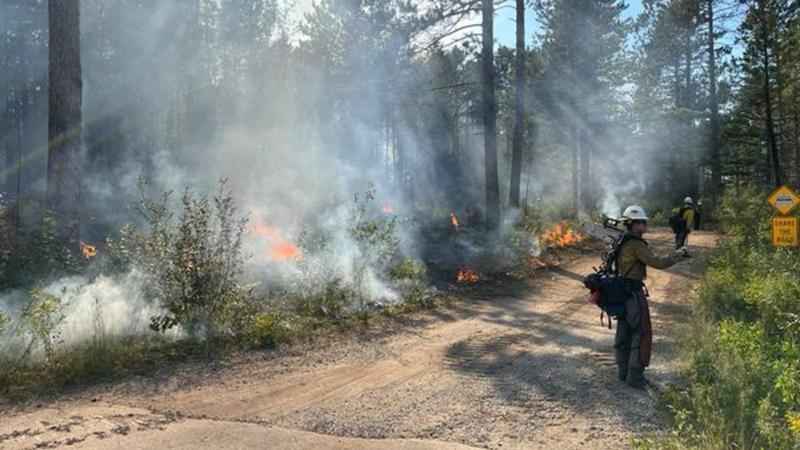Greenwood Fire now burning over 40 square miles, forcing air quality concerns as far as Duluth
The Greenwood Fire continues to burn up northeastern Minnesota as fire crews continue to work towards protecting homes in the area on Thursday.
New estimates Thursday morning show the fire grew in size on Wednesday, up 25,991 acres from 21,720 acres. The blaze now covers over 40 square miles of the Superior National Forest. At least a dozen structures were destroyed as a result of the fire.
On Wednesday, fuels were reduced around cabins and other structures to help protect them. Thursday’s focus will be to hold and improve after Wednesday’s firing operations.
The support of air resources, including the Minnesota National Guard, engines, bulldozers and other equipment will be used to reduce the burnable natural fuels near homes or near the edge of the fire, according to the update on Thursday. Crews will also strengthen containment lines and continue to build firelines where it’s feasible.
A total of 476 personnel are working on the fire, including cooperators and contractors. Those responding to the fire will deal with cooler temperatures on Thursday, with mostly cloudy skies.

[Courtesy of the U.S. Forest Service]
Regarding evacuations in the area, the Lake County Sheriff’s Office made the orders to evacuate McDougal Lake, Sand Lake, the Highway 2 corridor and north of Highway 1 in the vicinity of East and West Chub lakes, Jackpot, Slate Lake and the Mitawan Lake Road area. For more information on evacuations, please call Lake County Emergency Management at 773-844-6449. Individuals can also sign up for emergency alerts from Lake County.
Highway 2 remains closed from Forest Highway 11 to Highway 1. Highway 1 remains closed from New Tomahawk Road to Lankinen Road as well. A temporary flight restriction for aircraft is also in place over the fire area.
In addition, the Minnesota Pollution Control Agency said an Air Quality Alert has been issued in the area, extending into the Duluth metropolitan area. The alert is in effect until 8 p.m. Friday for St. Louis, Carlton, Itasca, Koochiching, Lake and Cook counties. To read more on the alert, click here.